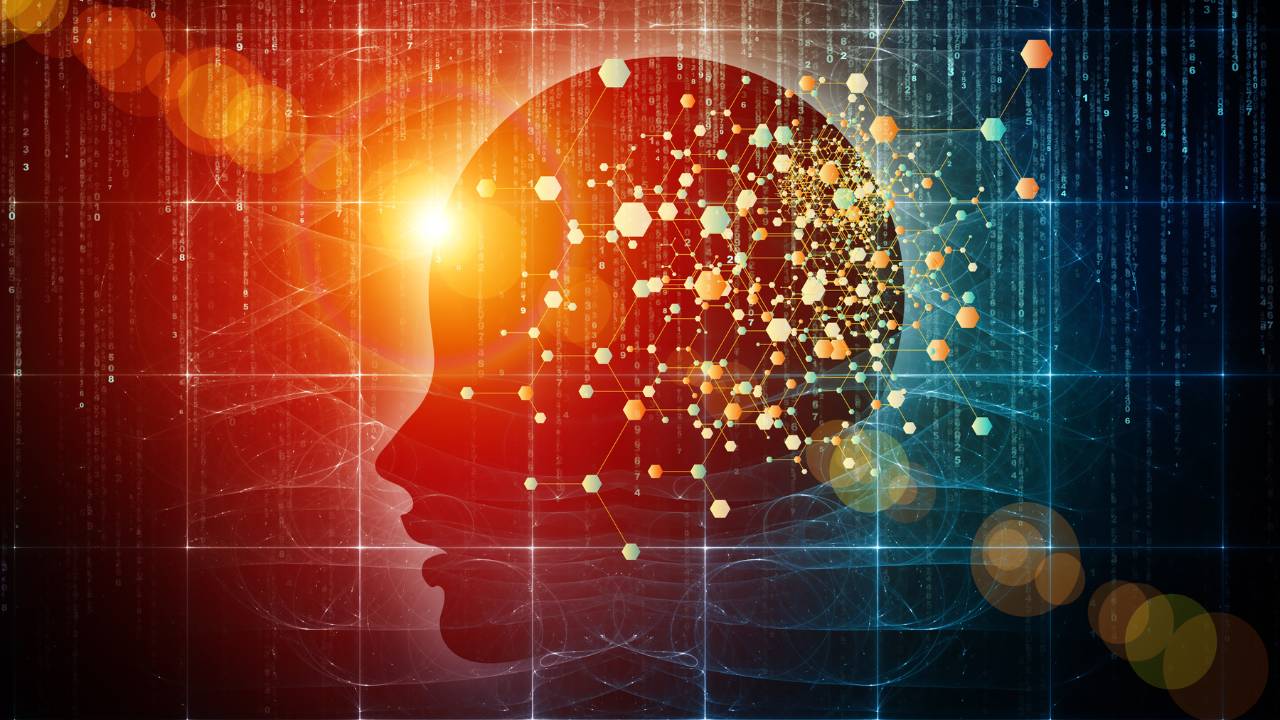Cannabis for Anxiety and Depression: Exploring Its Potential Benefits
May 08, 2025
By William Brown, Certified Medical Cannabis Specialist
Mental health challenges, such as anxiety and depression, affect millions of people worldwide. Conventional treatments, including therapy and pharmaceuticals, offer relief to many, but they are not without limitation. Some individuals face side effects, resistance to treatment, or persistent stigma
surrounding mental health care.
In recent years, medicinal Cannabis has emerged as a promising alternative for managing one’s mental health. With growing research exploring the therapeutic potential of Cannabis, both as a whole, and through compounds like CBD, THC, THCA, CBG, CBGA, and CBDA, folks are choosing Cannabis as an option for its health benefits, its calming, mood-enhancing effects, and the overall improvement in quality of life.
So, let's see how Cannabis could play a role in alleviating anxiety and depression, based on current open-access research.
Understanding Anxiety and Depression
Anxiety and depression are among the most common mental health disorders globally, often co-occurring and severely impacting an individual's quality of life. While conventional approaches such as cognitive behavioral therapy (CBT) and antidepressant medications remain the first-line treatments, they aren’t universally effective and can lead to major unwanted side effects. This has led to a growing
interest in exploring alternative therapies, including medicinal Cannabis, as complementary or substitute options for relief.
The Science Behind Cannabis and Mental Health
Cannabis contains a variety of active compounds, with CBD and THC being the most well-known. These interact with the body’s endocannabinoid system, which plays a crucial role in regulating mood, stress responses, emotional well-being, and overall internal balance so we can function as intended.
CBD is known for its lack of intoxicating properties, meaning it doesn’t cause the high associated with Cannabis use. Studies have shown that CBD may have anxiety-reducing and antidepressant effects, making it an attractive option for folks seeking relief without intoxication (1).
On the other hand, THC, the compound responsible for the euphoric feeling, may offer benefits for mood regulation but is also associated with risks like dependency or exacerbation of symptoms in sensitive individuals (2).
Emerging Research Highlights The Potential of Other Cannabinoids
CBG:
Known as the mother of all cannabinoids, CBG has shown promise in reducing anxiety and stress without the intoxicating effects of THC. NeuroScienceNews.com found that CBG significantly reduced feelings of anxiety and improved memory recall. (3)
CBGA:
As a precursor to major cannabinoids, CBGA, the acidic precursor, has demonstrated antioxidant and anti-inflammatory properties. Research suggests it may modulate oxidative stress and inflammatory pathways, which are often linked to mental health conditions. (4)
CBDA:
The acidic precursor to CBD has been shown to interact with serotonin receptors, potentially reducing anxiety and nausea. Studies also suggest its anti-inflammatory and neuroprotective effects. (5)
THCA:
A non-intoxicating compound produced by the Cannabis plant. It is the acidic precursor of THC. Offers a range of therapeutic benefits in many areas of health, including preventing nausea and vomiting, anti-inflammatory, inhibition or prevention of cell growth, and neuroprotectant effects. (6)
By understanding how these compounds function and examining their effects through rigorous research, we can better appreciate the role Cannabis plays in improving mental health outcomes.
Real-World Applications and Testimonials
For many folks struggling with anxiety and depression, medicinal Cannabis has become a lifeline. Beyond anecdotal evidence, real-world studies reinforce these experiences. Research shows that Cannabis products can improve sleep quality, reduce intrusive thoughts, and even ease symptoms of social anxiety. Furthermore, systematic reviews highlight the need for continued exploration of Cannabis as a complementary approach to managing depression. (7)
Considerations and Controversies
Like any medical intervention, Cannabis use comes with considerations. While many benefit from its therapeutic effects, others may experience adverse reactions such as increased anxiety, dependency, or cognitive impairment, especially with high doses of THC. For example, the intoxicating properties of THC, though potentially mood-lifting, can also trigger paranoia in certain folks, which is why Cannabis is known to have a biphasic effect. (8)
Another concern is the lack of standardization across Cannabis products. Dosages, purity, and cannabinoid ratios can vary, making it crucial for folks to consult with educated professionals and specialists while also seeking trusted sources. Critics also point out that more robust, long-term research is needed to fully understand Cannabis’s safety profile and effectiveness, which is a cry I find personally to be a farce and a tool of prohibition. (9)
Despite these challenges, the growing body of evidence suggests that when used responsibly, Cannabis can be a valuable tool for improving mental health. Advocacy for patient rights, clearer regulations, and increased research funding could help address the controversies and unlock its potential even further than what we understand up to this point in time.
Ok, time for the wrap up…
The therapeutic potential of Cannabis for anxiety and depression represents a promising avenue in mental health care. While conventional treatments remain, the integration of alternative approaches like medicinal Cannabis could (and does) offer relief to folks who struggle with traditional methods. Current research, though still evolving, highlights the benefits of cannabinoids, like the ones mentioned above in alleviating symptoms and improving quality of life.
However, the decision to use Cannabis as part of a treatment plan would be better fulfilled if one is guided by an educated medical Cannabis professional (who can also assist in talking with your healthcare professionals) to ensure safety and effectiveness. Understanding the nuances, both the benefits and the risks, is crucial as we navigate this complex but exciting landscape on the road to wellness.
By advocating for increased research and open dialogues, we can help create a future where mental health care is not only accessible, but also inclusive of diverse, evidence-based options like medicinal Cannabis. The journey toward improving mental health is ongoing, and with the right tools, guidance, and understanding, Cannabis can be a valuable ally in this endeavor.
References
1. García-Gutiérrez, María S., Francisco Navarrete, Ani Gasparyan, Amaya Austrich-Olivares, Francisco Sala, and Jorge Manzanares. 2020. "Cannabidiol: A Potential New Alternative for the Treatment of Anxiety, Depression, and Psychotic Disorders" Biomolecules 10, no. 11: 1575. https://doi.org/10.3390/biom10111575.
2. Brown, William. “Cannabis and the DSM: Differentiating Dependence from Addiction.” Www.Effectivenewsletter.Com, Effective Cannabis Newsletter, 6 Jan. 2025, www.effectivenewsletter.com/blog/cannabis-and-the-dsm-differentiating-dependence- from-addiction.
3. Zaske, Sara. “Cannabigerol (CBG) Reduces Anxiety and Improves Memory.” Neuroscience News, 31 July 2024, neurosciencenews.com/cbg-anxiety-memory-27507/.
4. Cuttler, C., Stueber, A., Cooper, Z.D. et al. Acute effects of cannabigerol on anxiety, stress, and mood: a double-blind, placebo-controlled, crossover, field trial. Sci Rep 14, 16163 (2024). https://doi.org/10.1038/s41598-024-66879-0
5. Kalcheff-Korn, Sasha. “CBDA: New and Existing Research.” Realm of Caring Foundation, 7 June 2023, realmofcaring.org/cbda-new-and-existing-research/. https://realmofcaring.org/
6. “What Is THCA? Understanding Benefits & Effects.” Healer, 21 July 2023, healer.com/blog/what-is-thca-benefits-and-effects/.
7. Stack, S.K., Wheate, N.J. & Schubert, E.A. Medicinal Cannabis for the Treatment of Anxiety Disorders: a Narrative Review. Curr Treat Options Psych 9, 163–173 (2022). https://doi.org/10.1007/s40501-022-00260-8
8. Magrabi, Tina. “The Biphasic Effects of Cannabis in Simple Terms.” Leafwell, Leafwell, 5 May 2025, leafwell.com/blog/biphasic-effect.
9. Norml. “Over 35,000 Scientific Papers Published about Cannabis since 2014.” NORML, 23 Dec. 2024, norml.org/blog/2024/12/23/analysis-over-35000-scientific-papers-published-about-cannabis-during-the-past-decade/.
About William Brown:
William owns and operates WbC Therapeutics, a company based on the therapeutic application of Cannabis as medicine. He is also a patient and authorized caregiver in his state. William is a certified Cannabis educator and coach.
Contact William at WbC Therapeutics through the e-mail link below to learn more about his services.
Effective Cannabis Newsletter is a platform to educate on the vital role of the Endocannabinoid System (ECS) in one's health. The information is not intended or implied to be a substitute for professional medical advice, diagnosis, or treatment. All content, including text, graphics, images, and information, contained in or available through this newsletter is for general information purposes only. It is not medical advice; it is health awareness.
Were you moved or inspired by a piece of content?
Do you have a suggestion or question for us?
Do you have a powerful story about your health and Cannabis?
Click the button and let us know!




